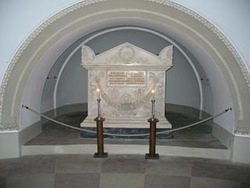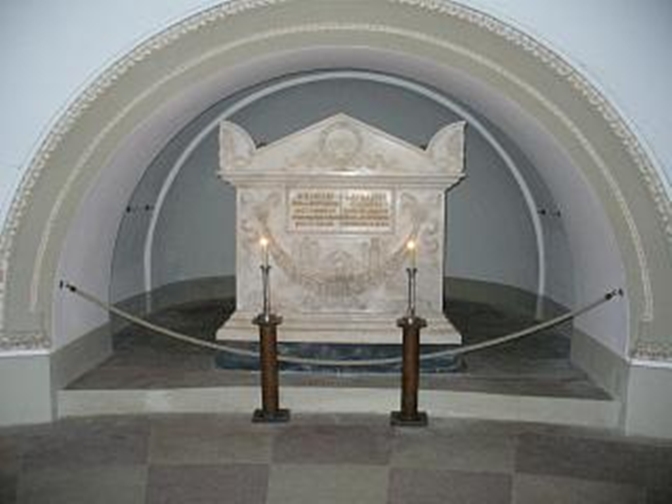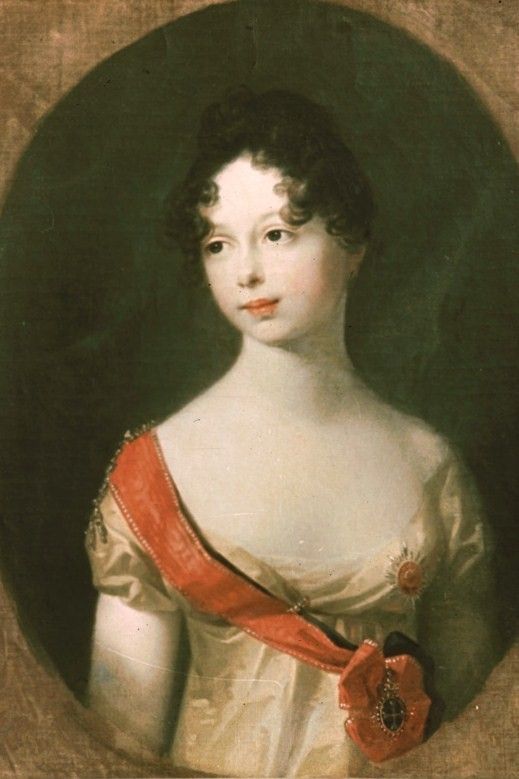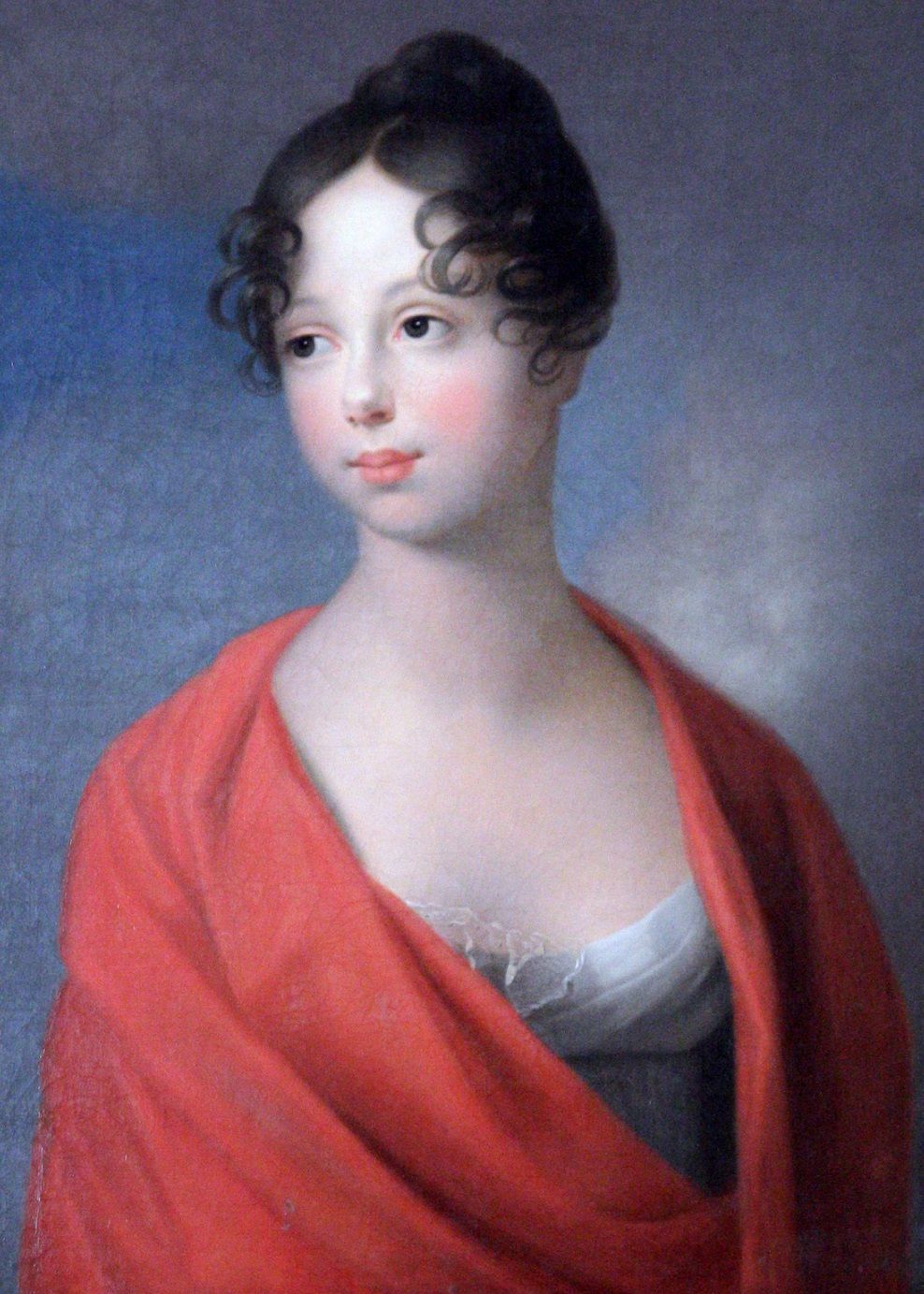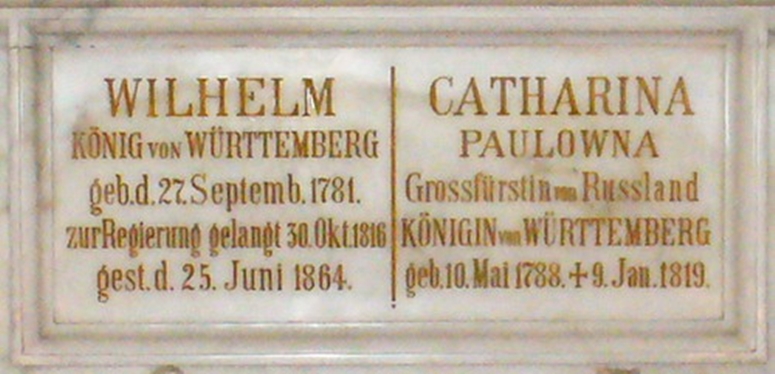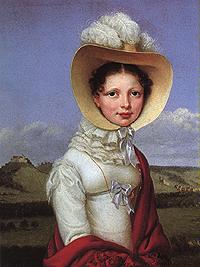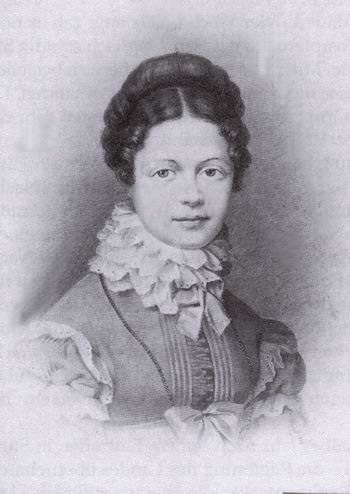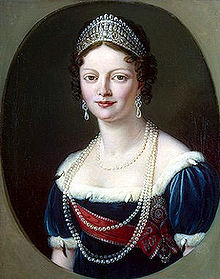Just how great the esteem for and importance of the deceased Queen was, is shown by the willingness in 1819 to pull down the family seat of the Württembergs to make room for her sepulchral chapel (Grabkapelle).
Queen Katharina had brought an unusually modern social structure to the state. She founded the first Württemberg savings bank, created schools with modern curricula, hospitals, children's homes and institutions for feeding the poor, which she paid for partially from her immense Russian dowry. As the Russian Grand Duchess she was a member of the Russian-Orthodox Church and remained so (an indispensable condition for the marriage of a Russian princess to a member of a Western dynasty of princes) when she wed the Lutheran Crown Prince Wilhelm. Every Easter Monday a church service is held in the Sepulchral Chapel in her memory.
Just how great the esteem for and importance of the deceased Queen was, is shown by the willingness in 1819 to pull down the family seat of the Württembergs to make room for her sepulchral chapel (Grabkapelle).
Queen Katharina had brought an unusually modern social structure to the state. She founded the first Württemberg savings bank, created schools with modern curricula, hospitals, children's homes and institutions for feeding the poor, which she paid for partially from her immense Russian dowry. As the Russian Grand Duchess she was a member of the Russian-Orthodox Church and remained so (an indispensable condition for the marriage of a Russian princess to a member of a Western dynasty of princes) when she wed the Lutheran Crown Prince Wilhelm. Every Easter Monday a church service is held in the Sepulchral Chapel in her memory.
Family Members
-
![]()
Alexander I
1777–1825
-
![]()
Constantine Pavlovich Romanov
1779–1831
-
![]()
Alexandra Pavlovna - Grand Duchess of Russia
1783–1801
-
![]()
Grand Duchess Alexandra Pavlovna
1783–1801
-
![]()
Helena Pavlovna of Russia
1784–1803
-
![]()
Maria Paulowna Romanowa von Sachsen-Weimar-Eisenach
1786–1859
-
![]()
Olga Pavlovna
1792–1795
-
![]()
Anna Paulowna
1795–1865
-
![]()
Nicholas I Pavlovich Romanov
1796–1855
-
![]()
Michael Pavlovich Romanov
1798–1849
Advertisement
Advertisement
